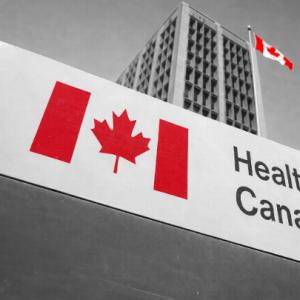Government meddling in independent health guidelines is bad for Canadians
A version of this article is circulating as a letter to the Health Minister which has been signed by more than 1400 people.
On March 4, federal Health Minister Mark Holland announced the suspension of the work of the Canadian Task Force on Preventive Health Care (Task Force). As healthcare professionals committed to evidence-based medicine, this decision shocks, disappoints, and deeply shakes our trust in our political leaders.
The Task Force is internationally recognized for its rigorous, independent work based on the best available evidence. Its recommendations are essential for ensuring relevant preventive care that is free from commercial influence and tailored to the realities of primary care. This suspension comes at a time when family medicine is facing an unprecedented crisis, marked by resource shortages, overwhelming workloads, and limited access to care for a significant portion of the population. Halting the work of the Task Force dismisses the expertise of frontline physicians and of experts in methodology and screening. It also undermines the importance of recommendations and tools adapted to the realities of primary care practice, ultimately harming the quality of care for all.
In this already fragile context, suspending the Task Force paves the way for increased commercialization of healthcare and a surge in direct-to-consumer marketing of low-value — sometimes even harmful — tests and treatments. However, “doing more” does not necessarily mean “doing better.”
The Task Force’s recommendations serve as a safeguard against practices driven by financial and political interests rather than science and public health. The entire healthcare system is already facing a crisis in human and financial resources, and the inappropriate use of preventive care and screening only adds to this burden, further straining an overstretched system.
The minister’s decision has been welcomed by some critics of the Task Force who criticize their rigorous, impartial analysis of scientific evidence and favour guidelines where expert opinion would play a larger role.
Many of these groups have spent years publicly attacking the Task Force, undermining its credibility. To support their claims of efficacy, they have relied on selective, often lower-quality evidence and statistics that give a deceivingly inflated view of possible benefits of screening, creating a misleading narrative. This distortion gives the false impression that the Task Force is denying patients access to essential care, when in reality, its recommendations are based on the best available evidence to ensure that interventions do more good than harm.
Disagreements over the interpretation of science among professional societies are one thing — scientific debate is both necessary and constructive. But jeopardizing an organization whose mission is to ensure knowledge translation free from external pressures is something else entirely. Allowing vested interests to dictate medical practice threatens the very foundation of evidence-based care and the integrity of our healthcare system.
Following publication of the Task Force’s draft recommendations on breast cancer screening in 2024, the organization has been under fire from detractors of the guideline. Shortly after these guidelines were published — highlighting the importance of personal choice based on informed discussion of both benefits and harms — the federal Minister of Health commissioned an independent external review of the Task Force. We are concerned this may have been done in response to pressure from different advocacy groups.
The external reviewers are finalizing their recommendations in a report to the Public Health Agency of Canada due March 31, 2025. If the goal is to strengthen institutions and promote transparency, it would be reasonable for the minister to wait for the external reviewers' conclusions to be made public before requesting an institution to pause its scientific work. Doing so would allow the Task Force to continue working on many important upcoming guidelines.
This government interference in a group meant to operate independently and at arm’s length sends shockwaves through the research and medical communities. If a Minister of Health can override the Task Force, a respected institution, nothing stops him from exerting similar control over other independent bodies.
At a time when anti-science rhetoric and public distrust in healthcare are on the rise, transparency and adherence to a rigorous, independent process — like that of the Task Force — are more essential than ever. Public funding for guideline development is not just beneficial; it is imperative, as conflicts of interest have repeatedly been shown to introduce bias into recommendations.
We call on the federal government and the ministry of Health to reverse this decision immediately and make a firm commitment to safeguarding the future of the Task Force and its independence, and to protecting a healthcare system grounded in science and the public good. Canadians, along with healthcare professionals, deserve to rely on credible, trustworthy expertise that is free from external pressures.
---
René Wittmer MD CCFP - Practising family physician, Chair of the best practises working group at the Quebec College of Family Physicians, Assistant professor of medicine at the University of Montreal.
Geneviève Bois MD CCFP - Practising family physician, President of the Quebec College of Family Physicians, Assistant professor of medicine at the University of Montreal.








